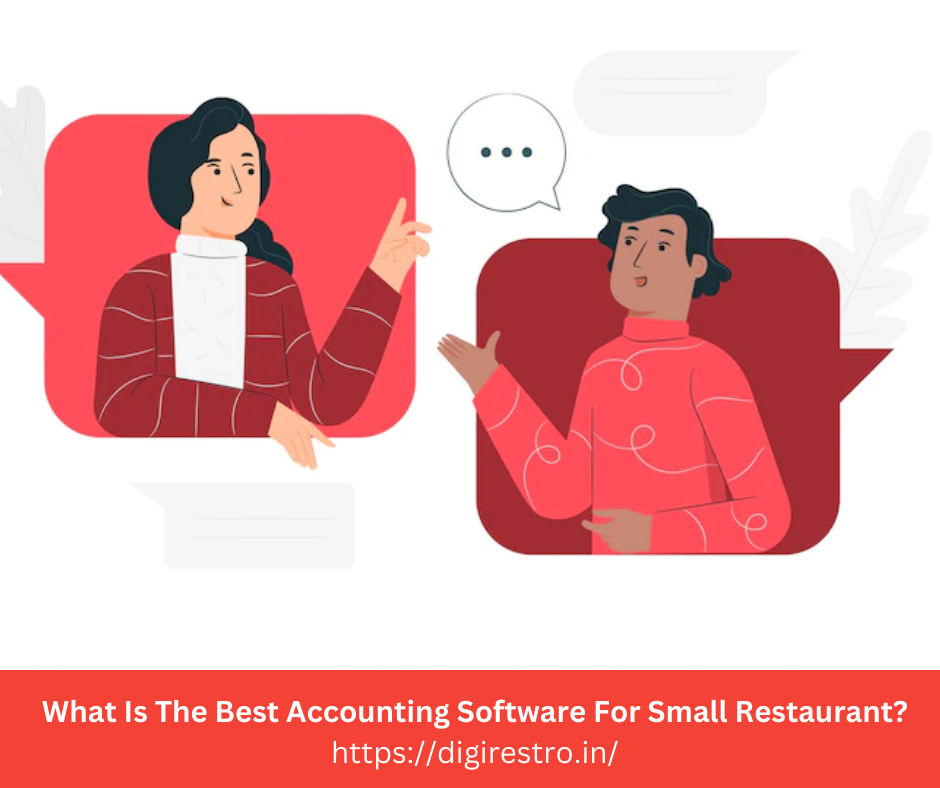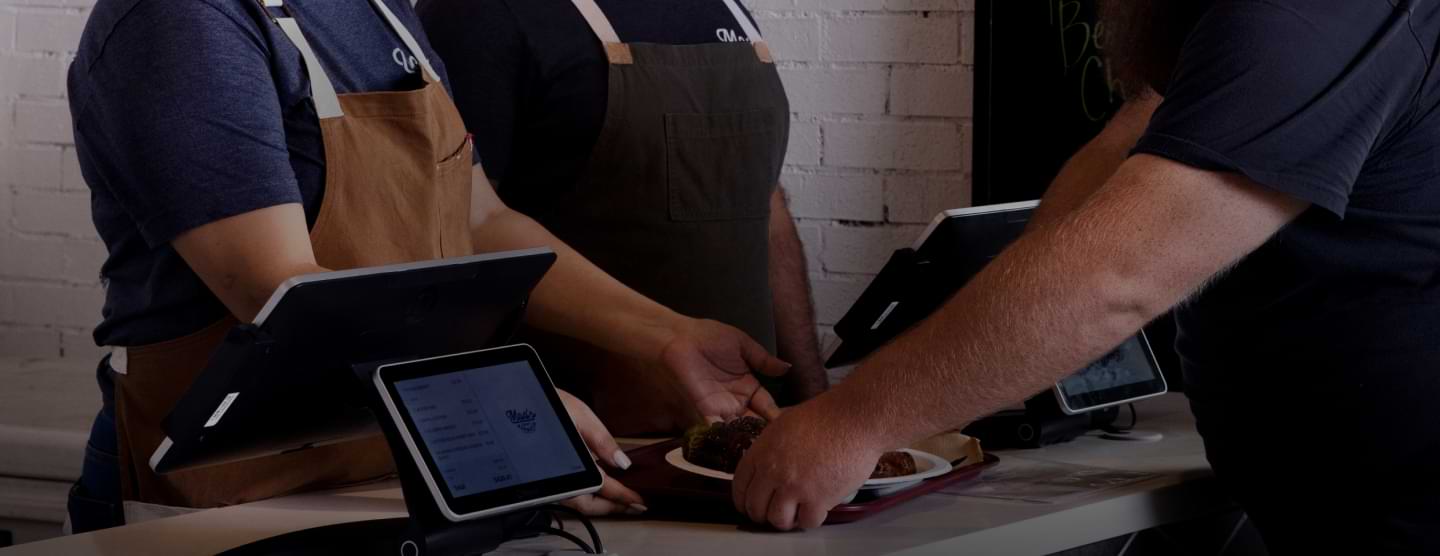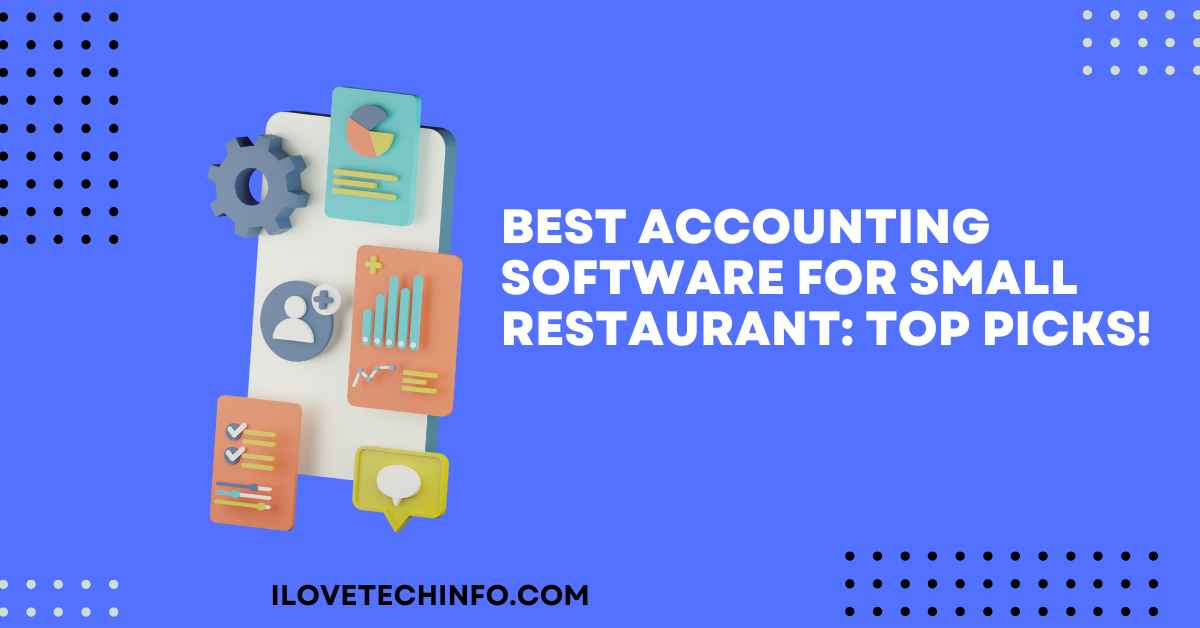For small restaurants, the best accounting software options include QuickBooks, FreshBooks, and Xero. These platforms offer easy-to-use features for managing finances, tracking expenses, and generating reports.
Each software has its own unique strengths, such as QuickBooks’ robust payroll capabilities and Xero’s advanced inventory management. By choosing the right accounting software, small restaurant owners can streamline their financial operations and make informed business decisions. Owning and operating a small restaurant comes with its own set of challenges, especially when it comes to managing finances.
From tracking daily expenses to handling payroll and inventory, the demands of running a restaurant can be overwhelming. Fortunately, there are several accounting software options specifically designed to meet the needs of small restaurant owners. We will explore the best accounting software for small restaurants, highlighting their key features and benefits to help you make an informed decision for your business.

Credit: digirestro.in
Introduction To Accounting Software For Small Restaurants
Discover the best accounting software solutions tailored for small restaurants. Streamline your financial management and ensure accurate bookkeeping with user-friendly tools designed for your unique needs. Simplify your restaurant’s accounting processes and focus on what you do best – serving delicious meals to your customers.
Running a small restaurant requires more than just providing excellent food and service. It also involves managing finances, such as tracking income and expenses, managing payroll, and generating financial reports. This is where accounting software for small restaurants comes into play. These specialized tools can help restaurant owners streamline their financial management processes, save time, and improve accuracy. In this blog post, we’ll explore why restaurants need specialized accounting tools and the impact of efficient accounting on small restaurant businesses.
Why Restaurants Need Specialized Accounting Tools
Restaurants have unique accounting needs that general accounting software may not be equipped to handle. For example, restaurants need to track inventory and ingredient costs, manage tips, and handle sales tax calculations. Additionally, restaurant accounting software can help with menu costing, which can help owners determine the profitability of each menu item. With specialized accounting tools, restaurant owners can save time and reduce errors by automating tasks like payroll processing and invoice management.
Impact Of Efficient Accounting On Small Restaurant Businesses
Efficient accounting can have a significant impact on the success of small restaurant businesses. With accurate financial data, restaurant owners can make informed decisions about pricing, menu items, and staffing. They can also identify areas where they can cut costs and improve profitability. Additionally, efficient accounting can help restaurants stay compliant with tax laws and regulations, reducing the risk of penalties and fines. By using specialized accounting software, small restaurant owners can free up time to focus on growing their business and providing an exceptional dining experience for their customers.
Key Features To Look For In Restaurant Accounting Software
When choosing accounting software for your small restaurant, it’s crucial to consider the key features that will streamline your financial operations. The right software can help you efficiently manage inventory, track sales, integrate payroll, and ensure tax compliance. Let’s explore the essential features to look for in restaurant accounting software:
Inventory Management
Efficient inventory management is vital for a small restaurant. Look for accounting software that offers real-time tracking of ingredients and supplies, helps in managing stock levels, and provides alerts for low inventory. The ability to create purchase orders and track vendor deliveries can also streamline the procurement process.
Sales Tracking
Effective sales tracking is essential for understanding your restaurant’s financial performance. Seek software that provides detailed sales reports, tracks revenue by product or menu item, and integrates with your point-of-sale system. This feature can help you identify top-selling items, manage pricing strategies, and make informed business decisions.
Payroll Integration
Integrating payroll functions within your accounting software can save time and reduce errors. Look for a solution that offers seamless integration with your payroll system, automates wage calculations, tracks employee hours, and generates payroll reports. This feature streamlines the process of paying your staff accurately and on time.
Tax Compliance
Ensure that your accounting software simplifies tax compliance for your restaurant. Look for features such as automatic tax calculations, support for multiple tax rates, and the ability to generate tax reports. This ensures that your business remains compliant with tax regulations, minimizes errors, and simplifies the tax filing process.
The Role Of Usability And Support In Choosing Software
The usability and support of accounting software are crucial factors to consider when choosing the best option for a small restaurant. These aspects ensure ease of use and accessibility, making it easier for restaurant owners to manage their finances effectively.
User-friendly Interface
When it comes to choosing accounting software for your small restaurant, one of the crucial factors to consider is the user-friendliness of the interface. A user-friendly interface means that the software is designed in a way that is intuitive and easy to navigate, even for those who may not have extensive accounting knowledge or experience.
A simple and well-organized interface allows you to quickly access the features and functions you need, saving you time and minimizing frustration. With a user-friendly accounting software, you can easily input and manage your financial data, track expenses, generate reports, and perform other essential tasks with ease.
Moreover, a user-friendly interface also ensures that your team members can easily learn and adapt to the software, reducing the need for extensive training and minimizing the chances of errors or mistakes in data entry.
Customer Support And Training Resources
Another vital aspect to consider when choosing accounting software for your small restaurant is the availability of customer support and training resources. Efficient and responsive customer support can be a lifesaver when you encounter any issues or have questions while using the software.
Whether it’s through email, live chat, or phone, having reliable customer support means that you can get the assistance you need promptly, minimizing downtime and ensuring smooth operations.
Equally important are the training resources provided by the software vendor. These resources can include comprehensive user guides, video tutorials, and webinars that help you and your team understand the software’s features and functionalities. A software provider that offers robust training resources ensures that you can make the most out of the software and maximize its potential for your restaurant’s financial management.
In conclusion, when choosing the best accounting software for your small restaurant, considering the usability of the interface and the availability of support and training resources is essential. A user-friendly interface allows for efficient and easy navigation, while reliable customer support and comprehensive training resources ensure that you can effectively utilize the software and overcome any challenges that may arise. By prioritizing usability and support, you can select accounting software that will streamline your restaurant’s financial processes and contribute to your overall success.

Credit: quickbooks.intuit.com
Budget Considerations For Small Restaurants
For small restaurants on a budget, finding the best accounting software is crucial. The right software can help streamline financial management and improve efficiency. With a focus on affordability and user-friendly features, small restaurant owners can find the perfect accounting software to meet their needs.
Cost Vs. Benefit Analysis
When it comes to budget considerations for small restaurants, conducting a cost vs. benefit analysis is crucial. This analysis allows you to evaluate the financial impact of investing in accounting software and determine whether the benefits outweigh the costs. By considering the specific needs of your restaurant and weighing them against the potential advantages of implementing accounting software, you can make an informed decision that aligns with your budget.
Subscription Models And One-time Fees
One important aspect to consider when evaluating accounting software options is the pricing model. Many software providers offer subscription-based models, where you pay a monthly or annual fee to access the software. On the other hand, some software may require a one-time upfront payment. Each model has its pros and cons, and it’s essential to choose the one that suits your budget and long-term financial goals.
In a subscription model, you typically have lower upfront costs, as you pay for the software on an ongoing basis. This can be advantageous for small restaurants with limited budgets, as it allows for predictable and manageable expenses. Additionally, subscription-based software often includes regular updates and customer support, ensuring you have access to the latest features and assistance when needed.
However, if your restaurant has a larger upfront budget or prefers to make a one-time payment, software with a one-time fee might be a better option. While the initial cost may be higher, you won’t have recurring expenses, which can be beneficial in the long run. It’s important to weigh the immediate cost against the potential savings over time and determine which pricing model aligns with your financial capabilities.
Moreover, when considering subscription models, pay attention to the terms and conditions. Some software providers offer discounted rates for annual subscriptions, which can result in cost savings. Additionally, be aware of any cancellation fees or penalties associated with terminating a subscription early, as these factors can impact your overall budget.
Ultimately, the choice between a subscription model and one-time fees depends on your restaurant’s financial situation and preferences. By carefully evaluating the costs and benefits of each option, you can select the accounting software that best fits your budget and supports your restaurant’s financial management needs.
Top Accounting Software Picks For Small Restaurants
As a small restaurant owner, finding the right accounting software can be daunting. However, with options such as QuickBooks, FreshBooks, and Xero, managing finances has never been easier. These top accounting software picks offer features such as invoicing, inventory tracking, and expense management to help streamline your restaurant’s financial operations.
As a small restaurant owner, managing finances is one of the most critical aspects of running your business. With so many accounting software options available, it can be challenging to choose the right one for your needs. To help you make an informed decision, we have put together a list of the top accounting software picks for small restaurants.
Quickbooks For Restaurants
QuickBooks is a popular accounting software that offers a range of features designed specifically for small businesses, including restaurants. With QuickBooks, you can easily manage your invoices, track your expenses, and create financial reports. Additionally, QuickBooks for Restaurants includes features such as menu costing, inventory tracking, and sales reporting, making it an excellent choice for small restaurant owners.
Xero: A Versatile Choice
Xero is a cloud-based accounting software that offers a range of features for small businesses. With Xero, you can easily manage your finances, track your expenses, and create financial reports. Additionally, Xero offers a range of integrations with other business tools, making it a versatile choice for small restaurant owners. With Xero, you can also manage your inventory, create purchase orders, and track your bills, making it an all-in-one solution for your accounting needs.
Freshbooks: Cloud Simplicity
FreshBooks is a cloud-based accounting software that is easy to use and offers a range of features for small businesses. With FreshBooks, you can easily manage your invoices, track your expenses, and create financial reports. Additionally, FreshBooks offers a range of integrations with other business tools, making it a simple and effective choice for small restaurant owners. With FreshBooks, you can also track your time, manage your projects, and collaborate with your team, making it an all-in-one solution for your business needs.
Zoho Books For Seamless Integration
Zoho Books is a cloud-based accounting software that offers a range of features for small businesses. With Zoho Books, you can easily manage your finances, track your expenses, and create financial reports. Additionally, Zoho Books offers a range of integrations with other business tools, making it a seamless choice for small restaurant owners. With Zoho Books, you can also manage your inventory, create purchase orders, and track your bills, making it an all-in-one solution for your accounting needs.
In conclusion, choosing the right accounting software for your small restaurant can be challenging, but with our top picks, you can find the one that best suits your business needs. Each of these accounting software options offers unique features that can help you manage your finances effectively, so be sure to consider all of your options before making a decision.
Case Studies: Small Restaurants Thriving With The Right Software
Discover how small restaurants are thriving with the best accounting software tailored for their needs. Uncover how the right software can streamline financial operations and boost overall efficiency, helping small restaurants succeed in a competitive industry.
Success Stories
In the realm of small restaurant businesses, the choice of accounting software can be pivotal. Let’s explore some real-world examples of how the right software has propelled small restaurants to success.
Common Challenges And Solutions
Small restaurants often face financial management hurdles. Let’s delve into the challenges these eateries encounter and how the right accounting software offers solutions.
Customization And Scalability
Easily customize and scale your accounting needs with the best software for small restaurants. This solution offers flexibility and adaptability to meet the unique requirements of your business, ensuring smooth operations and efficient financial management.
Adapting Software To Your Restaurant’s Needs
Customization and scalability are crucial when choosing the best accounting software for a small restaurant.
Planning For Growth
Restaurants must consider scalability for future expansion and increased operations.
Transitioning To New Accounting Software
Transitioning to new accounting software is crucial for small restaurants to streamline their financial processes efficiently. To ensure a smooth transition, proper data migration strategies and staff training are essential.
Data Migration Strategies
When migrating data to new accounting software, planning and organization are key. Create a detailed inventory of all existing data and categorize it for easy transfer. Utilize data backup to prevent loss during the migration process.
Training Staff For A Smooth Transition
Staff training is vital for adapting to the new accounting software. Provide comprehensive training sessions to familiarize employees with the features and functions of the new software. Encourage hands-on practice to enhance understanding.
Security And Data Protection
When it comes to running a small restaurant, security and data protection are paramount. The right accounting software can help safeguard sensitive information and ensure compliance with data protection regulations.
Ensuring Sensitive Information Safety
Using robust encryption and secure servers, accounting software protects customer data.
Access controls limit who can view sensitive information.
Regular backups prevent data loss in case of emergencies.
Compliance With Data Protection Regulations
Accounting software ensures compliance with GDPR and other data protection laws.
Data anonymization features protect customer privacy.
Automatic updates keep security measures up to date.
Final Thoughts And Recommendations
In evaluating the best accounting software for small restaurants, it is essential to consider user-friendly interfaces, robust reporting features, and integration capabilities with point-of-sale systems. Additionally, choosing a software that offers inventory management and payroll functionality can streamline operations and enhance financial management.
Based on these criteria, QuickBooks and FreshBooks emerge as top recommendations for small restaurant owners.
Making The Decision
Now that you have gone through the various accounting software available for small restaurants, it’s time to make a decision. Consider the size of your business, your budget, and the features you need before making a final choice. Remember that the software you choose should be user-friendly, easy to navigate, and efficient in handling your accounting needs.
If you’re still unsure which software to choose, consider taking advantage of free trials offered by some of the providers. Use the free trial period to test the software and determine if it meets your requirements. Additionally, consider seeking advice from other restaurant owners or accounting professionals.
Further Resources And Assistance
If you need further assistance in choosing the right accounting software for your small restaurant, there are various resources available. You can browse through online forums to see what other restaurant owners are using and what they recommend. Additionally, you can reach out to the software providers’ customer service representatives for more information and guidance.
Investing in the right accounting software can save you time, money, and effort in the long run. With the right software, you can streamline your accounting processes, stay organized, and make informed financial decisions. Make sure to choose a software that suits your business needs and budget, and take advantage of any available resources to ensure a smooth transition to your new system.
:max_bytes(150000):strip_icc()/GettyImages-1442731807-de72b6667831444298d539e63d58693f.jpg)
Credit: www.investopedia.com
Frequently Asked Questions
What Is The Best Accounting Method For Restaurants?
The best accounting method for restaurants is the accrual method. It provides a more accurate representation of financial status. This method records income and expenses when they occur, giving a clearer picture of the business’s financial health.
Is Freshbooks Good For Restaurants?
Yes, FreshBooks is good for restaurants. It helps with invoicing, expense tracking, and managing customer payments. It is user-friendly, efficient, and helps streamline financial processes for restaurant owners.
Which Accounting Option Is Easiest For A Very Small Business To Maintain?
For very small businesses, a simple cash accounting system is the easiest option to maintain. It tracks income and expenses when they are received or paid, providing a clear picture of cash flow. This method is straightforward and does not require complex accruals.
How Much Does Accounting Software Cost For Small Business?
The cost of accounting software for small businesses can vary depending on the features and level of support needed. Prices typically range from $10 to $50 per month for basic software, while more advanced options can cost up to $150 per month or more.
It’s important to research and compare options to find the best fit for your business needs and budget.
Conclusion
To sum up, selecting the best accounting software for your small restaurant can greatly impact your business operations. By streamlining financial management tasks, such software allows you to efficiently handle payroll, inventory, invoicing, and more. With options like QuickBooks, FreshBooks, and Xero available, it’s essential to evaluate your specific needs and budget before making a decision.
Remember, investing in the right accounting software can save you time, money, and headaches in the long run. Choose wisely and watch your restaurant thrive.

